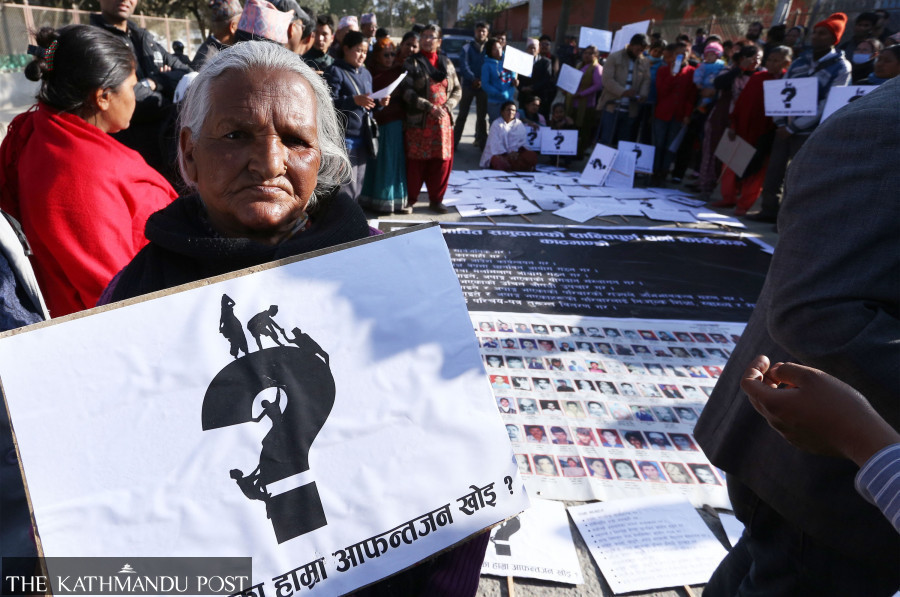National
Transitional justice law yet to be revised 7 years since court order
Campaigners to move court to hold officials in contempt for not abiding by the ruling.
Binod Ghimire
Seven years have gone by since the Supreme Court directed the government to amend the Act on Transitional Justice but no steps have been taken to implement the court’s ruling.
A five-member special bench led by then chief justice Kalyan Shrestha on February 26, 2015 issued a landmark ruling to the government to revise the Enforced Disappearances Enquiry, Truth and Reconciliation Commission Act-2014. The verdict rules out amnesty for convicts in cases related to rape, extrajudicial killing, enforced disappearance and torture.
The verdict said the Act wasn’t in line with international practices and the principle of transitional justice, therefore it needed a revision. The bench struck down almost a dozen provisions in the law and directed the government to ensure that no amnesty is granted in cases of serious human rights violations committed during the decade-long insurgency.
Instead of complying with the court’s order, the government, led by Sushil Koirala, in April that year filed a review. As the case was sub-judice in the court, the government took it as an excuse to delay the amendment.
In April 2020, the Supreme Court rejected the government’s petition to review its landmark decision saying that the verdict needed no revision. However, around two years since the court’s refusal for review, the government has taken initiatives for legal amendments.
“Today [Saturday] marks seven years since the Supreme Court verdict and around two years since the court declined to review its decision. However, successive governments are least interested in implementing the decision,” Suman Adhikari, a conflict victim and one of the petitioners, told the Post. “Nobody is concerned about delivering justice to the victims.”
Formed on February 9, 2015, the Truth and Reconciliation Commission has 63,718 cases to investigate while the Commission of Investigation on Enforced Disappeared Persons has some 2,500 cases to look into. In the last seven years since its formation, the truth commission has wrapped up just 29 cases so far.
The commissions have been blaming the lack of amendments to the Act as one of the reasons behind the delay in investigating war-era cases of human rights violations and providing justice.
“We have been requesting every government to amend the Act but to no avail. We have made a written appeal to incumbent law minister Dilendra Badu but I don’t think any progress has been made yet,” Mana Dahal, a spokesperson for the truth commission, told the Post. “We can only appeal.”
Experts on transitional justice say it is clear that successive governments have been unwilling to conclude the transitional justice process. They are making every attempt to postpone it, they say.
“All I want to say is amending an Act doesn’t take so long,” Shrestha, the former chief justice, told the Post. “It's a clear act of unwillingness of those in power.”
Those who have followed the ongoing transitional justice process say it is a contempt of court not to oblige by its ruling. “We are preparing to file a petition for contempt,” Raju Chapagain, a human rights lawyer, told the Post. “We are seeking the law minister’s position on the amendment, Sunday. If it is not in process, then we will move the court.”




 10.12°C Kathmandu
10.12°C Kathmandu















